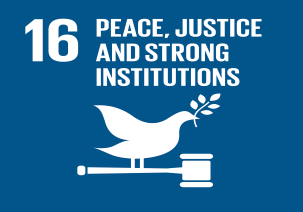8th July 2019 Geneva, Switzerland
Integrating Conventional Arms Control with Peace, Security and Development

Virtually all peace, security and development goals are severely hampered in contexts where arms and ammunition are not effectively regulated. It sounds like a statement of the obvious, but conventional arms control is not well integrated with thinking and actions on conflict prevention and management.
I noticed this when I moved from New York, where I worked in the Security Council and Peacebuilding Commission, to Geneva. I was unaware of the depth of knowledge and expertise on arms control issues here, despite the fact that conventional arms control is a crucial part of the UN’s peace and security pillar, with relevance to peacekeeping, peacebuilding, sanctions and mediation. It is also relevant to sustainable development. As has been said many times before, there can be no development without peace, and no peace without development.
That is why last year I created a Geneva Peace and Security Group to discuss how we could better connect the two disarmament hubs of Geneva and New York. The Group successfully pushed for the inclusion of Action 21 in the Secretary-General’s Agenda on Disarmament, which calls for integration of conventional arms control into United Nations conflict prevention and management thinking and actions.
The United Kingdom is also supporting the United Nations Institute for Disarmament Research (UNIDIR) with seed funding for a project that seeks to identify means and methods to integrate appropriate conventional arms control into the UN’s conflict prevention and management activities. This project will also support reform of the UN system’s work on conflict prevention and sustainable development.
As development practitioners gather in New York for the High Level Political Forum on Sustainable Development (HLPF), I would encourage them to think about how conventional arms control can help implement the Sustainable Development Goals (SDGs). Mostly obviously, conventional arms control can help in achieving a reduction in armed violence (Goal 16.1) and reducing illicit arms flows (Goal 16.4). However, we can go further. There is not yet an extensive understanding of the many ways in which implementing existing conventional arms control standards and guidance could benefit the implementation of all the SDGs. The UNIDIR project will research this and contribute to a more coherent approach by the UN system in supporting countries to achieve the SDGs.
During the discussions on Goal 16 at the HLPF, I encourage colleagues to discuss how conventional arms control can contribute to promoting peaceful and inclusive societies.